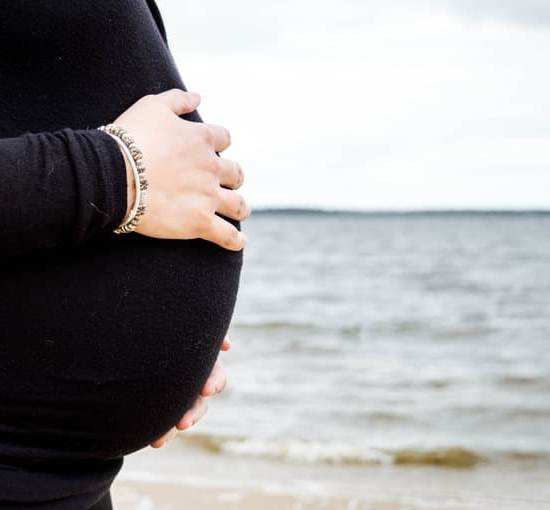When it comes to confirming a potential pregnancy, many women wonder: how soon is a pregnancy test accurate? The accuracy of a pregnancy test can vary depending on several factors, including the type of test used, when it is taken, and individual differences in hormone levels. Understanding the importance of knowing when a pregnancy test is accurate is crucial for women who are trying to conceive or suspect they may be pregnant.
Pregnancy tests come in various types, from traditional urine tests to more advanced digital tests. Each type operates on the same principle – detecting the presence of human chorionic gonadotropin (hCG) hormone produced by the placenta after fertilization. By understanding how these tests work and what hormones they detect, women can make informed decisions about when to take a pregnancy test for reliable results.
For those eager to know their pregnancy status early on, there are early detection tests available that claim to detect pregnancy even before a missed period. These tests are marketed as providing quick results, but it’s important to consider their accuracy rates and potential false positives. Factors such as timing of ovulation and implantation can affect the accuracy of these early detection tests, making it essential to weigh the pros and cons before relying on their outcomes.
Types of Pregnancy Tests
When it comes to taking a pregnancy test, there are various types available in the market. Understanding the differences between these tests can help individuals make an informed decision on which one to choose. One of the most common types of pregnancy tests is the home pregnancy test, which can be purchased over-the-counter at pharmacies or online. These tests typically involve collecting a urine sample and then waiting for a few minutes to see the results.
Another type of pregnancy test is the blood test, which is often done at a healthcare provider’s office. This test measures the levels of hCG (human chorionic gonadotropin) in the blood, which is a hormone produced during pregnancy.
Blood tests are considered more accurate than home pregnancy tests and can detect pregnancy earlier in some cases. There are also digital pregnancy tests that provide a clear result in words such as “pregnant” or “not pregnant,” eliminating any confusion that may arise from traditional line-based results.
Urine Pregnancy Tests
Urine pregnancy tests are widely used due to their convenience and ease of use. These tests detect hCG in the urine, which increases as the pregnancy progresses. Some urine tests claim to be able to detect hCG levels as early as 6 days before a missed period, but their accuracy may vary depending on factors like sensitivity and timing.
Blood Pregnancy Tests
Blood pregnancy tests, on the other hand, measure hCG levels in the bloodstream with higher accuracy than urine tests. They can detect lower levels of hCG earlier in pregnancy, making them suitable for early detection. Blood tests are typically recommended by healthcare providers when there is a need for confirmation of pregnancy or if initial results from home urine tests are inconclusive.
How Pregnancy Tests Work
Pregnancy tests work by detecting the hormone human chorionic gonadotropin (hCG) in a woman’s urine or blood. This hormone is produced by the placenta shortly after a fertilized egg attaches to the uterine lining. The levels of hCG increase rapidly in the early stages of pregnancy, making it a reliable indicator of pregnancy. Understanding how pregnancy tests detect this hormone can help women interpret their results accurately.
Most over-the-counter pregnancy tests are designed to detect hCG levels in urine samples. These tests typically use antibodies that react to hCG and produce a visible line or symbol to indicate a positive result. Blood tests conducted at healthcare facilities can also measure hCG levels and provide more accurate results, especially in the early stages of pregnancy when hCG concentrations are lower.
It is important to note that the accuracy of a pregnancy test is largely dependent on how soon after conception it is taken. While some tests claim to provide accurate results even before a missed period, it is generally recommended to wait until after the first day of a missed period for the most reliable outcome.
Taking a test too early could result in a false negative, as hCG levels may not be detectable yet. However, advancements in testing technology have made it possible for some early detection tests to accurately predict pregnancy as early as 6-8 days after conception.
| Types of Tests | Accuracy |
|---|---|
| Over-the-counter Urine Tests | 99% accurate when taken after a missed period |
| Blood Tests | Can detect pregnancy earlier with higher accuracy rates |
Early Detection Tests
Types of Early Detection Pregnancy Tests
There are several types of early detection pregnancy tests available on the market, including traditional urine tests, digital tests, and rapid response tests. These tests are designed to detect lower levels of the pregnancy hormone hCG (human chorionic gonadotropin) in the urine, allowing women to potentially find out if they are pregnant before their expected period.
How Early Can You Take an Early Detection Pregnancy Test?
Many early detection pregnancy tests claim to provide accurate results as soon as 6-8 days after ovulation. However, it is essential to note that the accuracy of these tests may vary depending on individual factors such as the sensitivity of the test and how soon implantation occurs after fertilization. It is recommended to follow the instructions provided with the specific test for the best results.
Accuracy and Reliability of Early Detection Tests
While early detection pregnancy tests can provide results before a missed period, it is important to understand that these tests may not always be accurate in detecting a very early pregnancy. Factors such as improper usage of the test, dilution of urine samples, or testing too early can affect the reliability of the results. It is advisable to confirm any positive result with a healthcare provider and consider retesting after a missed period for more reliable confirmation.
Accuracy of Pregnancy Tests
When it comes to taking a pregnancy test, one of the most crucial aspects to consider is its accuracy. The accuracy of a pregnancy test can vary depending on several factors, including the type of test used and when it is taken. Understanding the overall accuracy rates of different types of pregnancy tests can help individuals make informed decisions about when to take a test for reliable results.
Here is an overview of the overall accuracy rates of various pregnancy tests:
- Home Pregnancy Tests (HPTs): Home pregnancy tests are typically around 99% accurate when used correctly. These tests detect the hormone hCG in urine, which is produced during early pregnancy. It is essential to follow the instructions carefully and take the test at the right time for accurate results.
- Blood Tests: Blood tests for pregnancy, also known as beta hCG tests, are extremely accurate, with a sensitivity that can detect very low levels of hCG. Blood tests can detect pregnancy earlier than urine tests and are often used by healthcare providers for confirmation.
- Early Detection Tests: Early detection tests claim to provide accurate results even before a missed period. While these tests can be convenient for those anxious to know early on, they may have lower overall accuracy rates compared to standard HPTs or blood tests.
It is important to remember that no pregnancy test is 100% accurate, and there are factors that can influence the results. Factors such as improper use of the test, medications that interfere with hormone levels, or underlying medical conditions can affect the accuracy of a pregnancy test. Additionally, taking a test too early or too late in your menstrual cycle can impact its reliability.
Ultimately, if you are wondering how soon is a pregnancy test accurate, it is recommended to wait until you have missed your period before testing for best results. If you suspect you may be pregnant but receive a negative result, it may be advisable to wait a few days and retest or consult with a healthcare provider for further guidance.
Factors Affecting Accuracy
When it comes to determining how soon a pregnancy test is accurate, there are several factors that can influence the results. One crucial factor is the sensitivity of the pregnancy test being used.
Some tests are designed to detect lower levels of the pregnancy hormone hCG than others, making them more likely to provide accurate results earlier on in a pregnancy. It is essential to select a test that is appropriate for the timing of when you suspect you may be pregnant.
Another factor that can impact the accuracy of a pregnancy test is how it is conducted. Following the instructions provided with the test kit is crucial to ensuring reliable results. Taking the test too early or too late in the day, not using first-morning urine (which has higher concentrations of hCG), or misreading the results can all lead to inaccurate outcomes. Additionally, storing the test improperly or using an expired test can also compromise its accuracy.
Moreover, certain health conditions and medications can affect the accuracy of a pregnancy test. Medical conditions such as polycystic ovarian syndrome (PCOS) or certain fertility treatments can cause false-positive or false-negative results on a pregnancy test. Similarly, medications like antihistamines and anti-anxiety drugs may interfere with hormone levels and impact the reliability of the test. It is essential to be aware of these factors when considering how soon a pregnancy test will be accurate.
| Factors Affecting Accuracy | Influence on Test Results |
|---|---|
| Sensitivity of Pregnancy Test | Determines how early test can detect hCG levels |
| Proper Test Conduct | Following instructions for timing and usage |
| Health Conditions & Medications | Possible interference with hormone levels |
When to Take a Pregnancy Test
When it comes to taking a pregnancy test, timing is key to ensure accurate results. Understanding when to take a pregnancy test can make a significant difference in the reliability of the outcome. While many women may be eager to find out if they are pregnant as soon as possible, it is essential to wait for the right time to avoid potential false negatives or positives.
To help determine the best time to take a pregnancy test, consider the following guidelines:
- Missed Period: The most reliable time to take a pregnancy test is after you have missed your period. This is typically around one week after your expected period start date.
- Early Testing: Some pregnancy tests claim to provide accurate results even before a missed period. However, keep in mind that these early detection tests may not be as reliable and could lead to false results.
- Morning Urine: For the most accurate results, it is recommended to take a pregnancy test with your first-morning urine. This is because it contains higher concentrations of the pregnancy hormone hCG, making it easier for the test to detect.
It is important to note that waiting for the right time to take a pregnancy test can help avoid unnecessary stress and confusion. By following these guidelines and considering the factors that can affect the accuracy of a pregnancy test, you can improve your chances of obtaining reliable results when determining if you are pregnant.
Conclusion
In conclusion, for women wondering how soon a pregnancy test is accurate, it is essential to consider the type of test being used, as well as the timing of when the test is taken. Understanding the science behind pregnancy tests and how they detect hormones can also provide insight into their accuracy and reliability.
While early detection tests may claim to detect pregnancy before a missed period, it is crucial to note that the accuracy rates of these tests may vary.
Factors such as the sensitivity of the test, proper usage, and underlying health conditions can all influence the accuracy of a pregnancy test. It is important for women to follow the instructions provided with the test carefully and consult with a healthcare provider if there are any concerns or uncertainties about the results. Additionally, knowing when to take a pregnancy test can significantly impact its accuracy, with testing too early potentially leading to false negatives.
Ultimately, for women seeking accurate results from a pregnancy test, it is recommended to wait until after a missed period or at least one week after potential conception before testing. This timeframe allows for sufficient levels of hCG hormone to build up in the body for detection by most tests.
By being informed about how pregnancy tests work and understanding the factors that can affect their accuracy, women can make more informed decisions about when to take a pregnancy test for reliable results.
Frequently Asked Questions
How Soon Will a Pregnancy Test Read Positive?
The timing for a pregnancy test to read positive can vary depending on the woman’s menstrual cycle and when fertilization occurred. Generally, most tests can accurately detect pregnancy about 7-10 days after conception, which is around the time of a missed period.
Is a Pregnancy Test Accurate at 1 Week?
A pregnancy test may not be very accurate at just 1 week after conception since it might be too early to detect the pregnancy hormone hCG in urine. Waiting until closer to the time of your expected period or even a few days after would increase the accuracy of the test results.
How Soon Do Pregnancy Tests Give an Accurate Reading?
Pregnancy tests typically become more accurate the closer you are to your expected period date as hCG levels rise rapidly in early pregnancy. Some tests claim to detect pregnancy several days before a missed period, but it’s often recommended to wait until after you’ve missed your period for the most reliable results.

Welcome to my fertility blog. This is a space where I will be sharing my experiences as I navigate through the world of fertility treatments, as well as provide information and resources about fertility and pregnancy.





